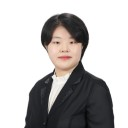Research Interests
Selective attention, Object perception, Statistical learning, Machine learning, EEG
Education
2022.03 ~ 2023.08 – M.S. Candidate, Behavioral and Cognitive Neuroscience, Korea University
2018.03 ~ 2022.02 – B.S. Psychology and B.S. Computer Science, Korea University
Positions
2022.03 ~ present – Graduate Student Researcher, HPLAB, School of Psychology, Korea University, Seoul, Korea
2021.01 ~ 2022.02 – Candidate for the Combined Bachelor’s/Master’s Degree Program in Behavioral and Cognitive Neuroscience, School of Psychology, Korea University
2020.07 ~ 2022.02 – Undergraduate Research Assistant, HPLAB, School of Psychology, Korea University
Conference Presentation
Jeong, J. & Cho, Y.S. (Nov.2023). Object Modulate Attentional Suppression in Target Search but not in Distracter Inhibition. Poster presented at the 2023 Annual Meething of the Psychonomic Society, San Francisco, USA
Lee, S.H. & Jeong, J. (Aug. 2023). The Effect of Object Representation on Feature-based Suppression. Poster to be presented at the 2023 Annual Conference of Korean Psychological Association, Seoul, Korea.
Jeong, J. & Cho Y.S. (Feb. 2023). Objects Modulate Attentional Suppression through Statistical Learning: Differential Effects of Object-based Attention on Singleton Distractor Inhibition and Target Search. Talk presented at the 2023 Annual Meeting of the Korean Society for Cognitive and Biological Psychology, Seoul, Korea
Jeong, J., Kim, S. & Cho, Y.S. (Nov. 2022). Attentional Suppression of Salient Singleton is Proactive: Examination with Finer Time Resolution in Capture-Probe Task. Poster presented at the 30th Annual Meeting of OPAM, Boston, MA, USA
Ryu, E., Jeong, J., & Cho, Y.S. (Aug. 2022). Object Dependency of Attentional Inhibition by Statistical Learning. Poster presented at the 2022 Annual Conference of Korean Psychological Association, Virtual.
Lim, A., Kim, S., Jeong, J., Lee, J.E., & Lee, Y.S. (Aug. 2020). The congruency sequence effect modulated by the distance of response keys. Poster presented at the 2020 Annual Conference of Korean Psychological Association, Virtual.
